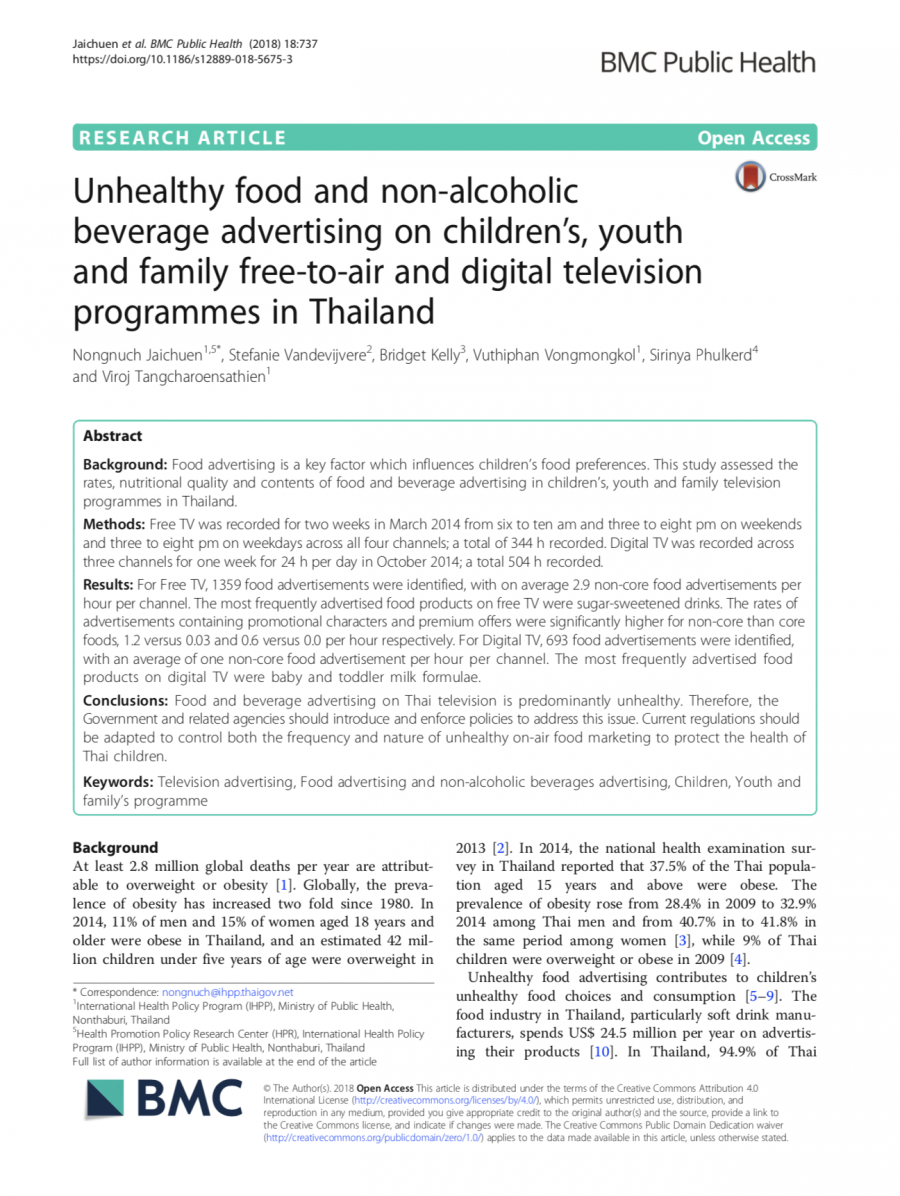Title: Unhealthy food and non-alcoholic beverage advertising on children's, youth and family free-to-air and digital television programmes in Thailand.
Authors: Nongnuch Jaichuen, Stefanie Vandevijvere, Bridget Kelly, Vuthiphan Vongmongkol, Sirinya Phulkerd and Viroj Tangcharoensathien
Issue Date: 2018
Publisher: BioMed Central Ltd
Abstract
Background: Food advertising is a key factor which influences children’s food preferences. This study assessed the rates, nutritional quality and contents of food and beverage advertising in children’s, youth and family television programmes in Thailand. Methods: Free TV was recorded for two weeks in March 2014 from six to ten am and three to eight pm on weekends and three to eight pm on weekdays across all four channels; a total of 344 h recorded. Digital TV was recorded across three channels for one week for 24 h per day in October 2014; a total 504 h recorded. Results: For Free TV, 1359 food advertisements were identified, with on average 2.9 non-core food advertisements per hour per channel. The most frequently advertised food products on free TV were sugar-sweetened drinks. The rates of advertisements containing promotional characters and premium offers were significantly higher for non-core than core foods, 1.2 versus 0.03 and 0.6 versus 0.0 per hour respectively. For Digital TV, 693 food advertisements were identified, with an average of one non-core food advertisement per hour per channel. The most frequently advertised food products on digital TV were baby and toddler milk formulae. Conclusions: Food and beverage advertising on Thai television is predominantly unhealthy. Therefore, the Government and related agencies should introduce and enforce policies to address this issue. Current regulations should be adapted to control both the frequency and nature of unhealthy on-air food marketing to protect the health of Thai children.
Related Works:
Declaration of nutrition information on and nutritional quality of Thai ready-to-eat packaged food p...
A Review of methods and tools to assess the implementation of government policies to create healthy ...
Level of implementation of best practice policies for creating healthy food environments
Corporate political activity of major food companies in Thailand: an assessment and policy recommend...
Childhood stunting in Thailand: when prolonged breastfeeding interacts with household poverty
Assessment of the stated policies of prominent food companies related to obesity and non-communicabl...

